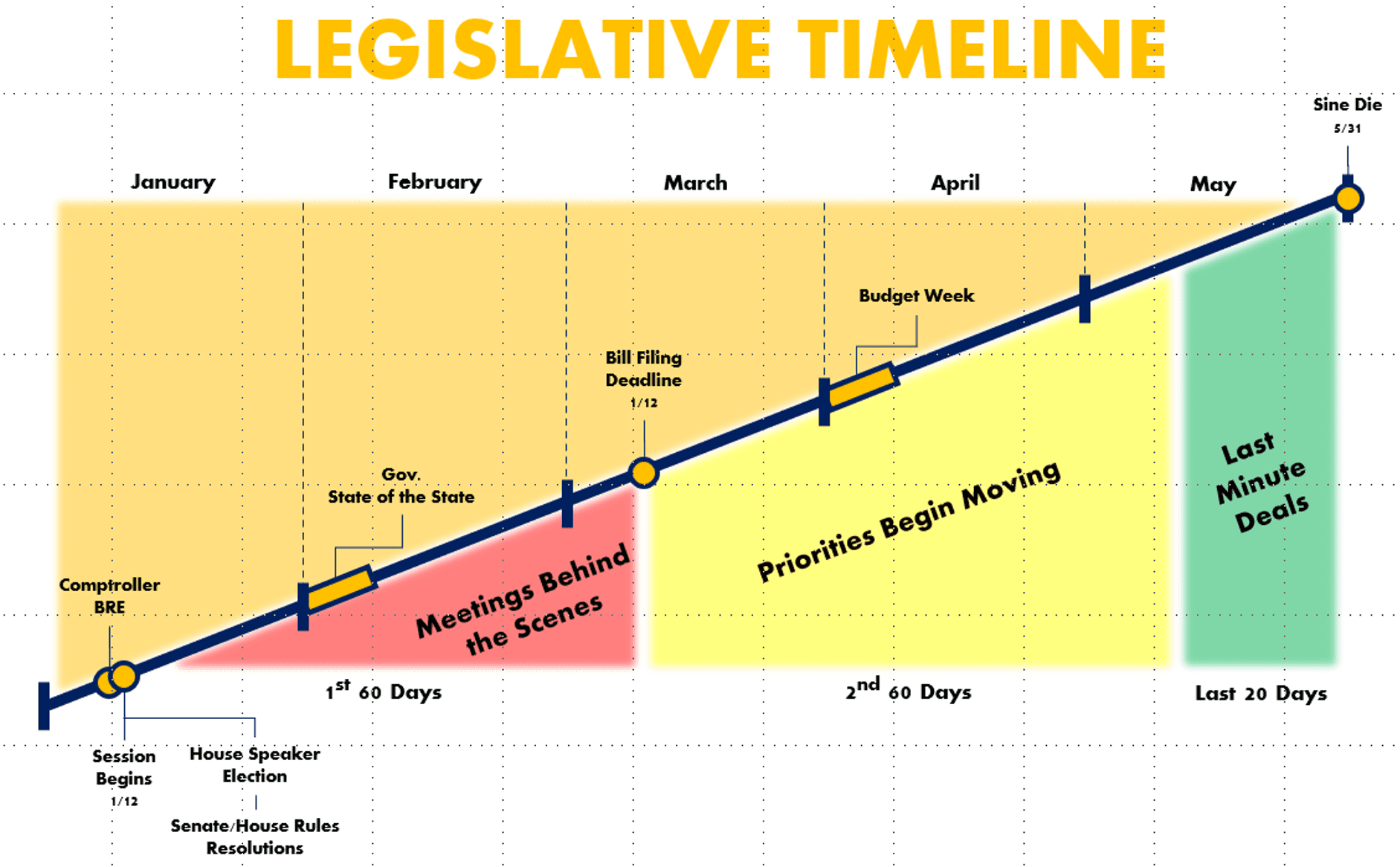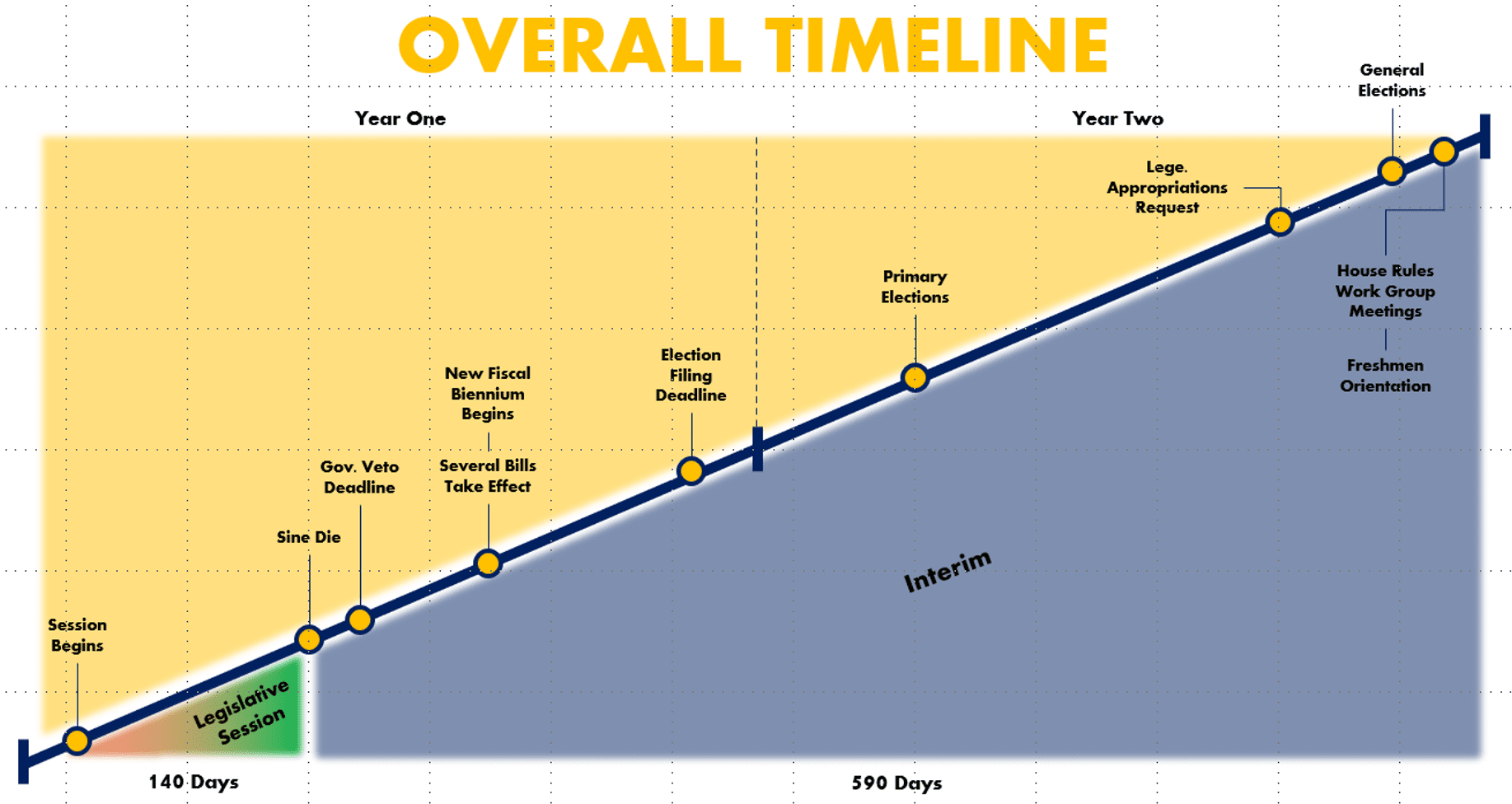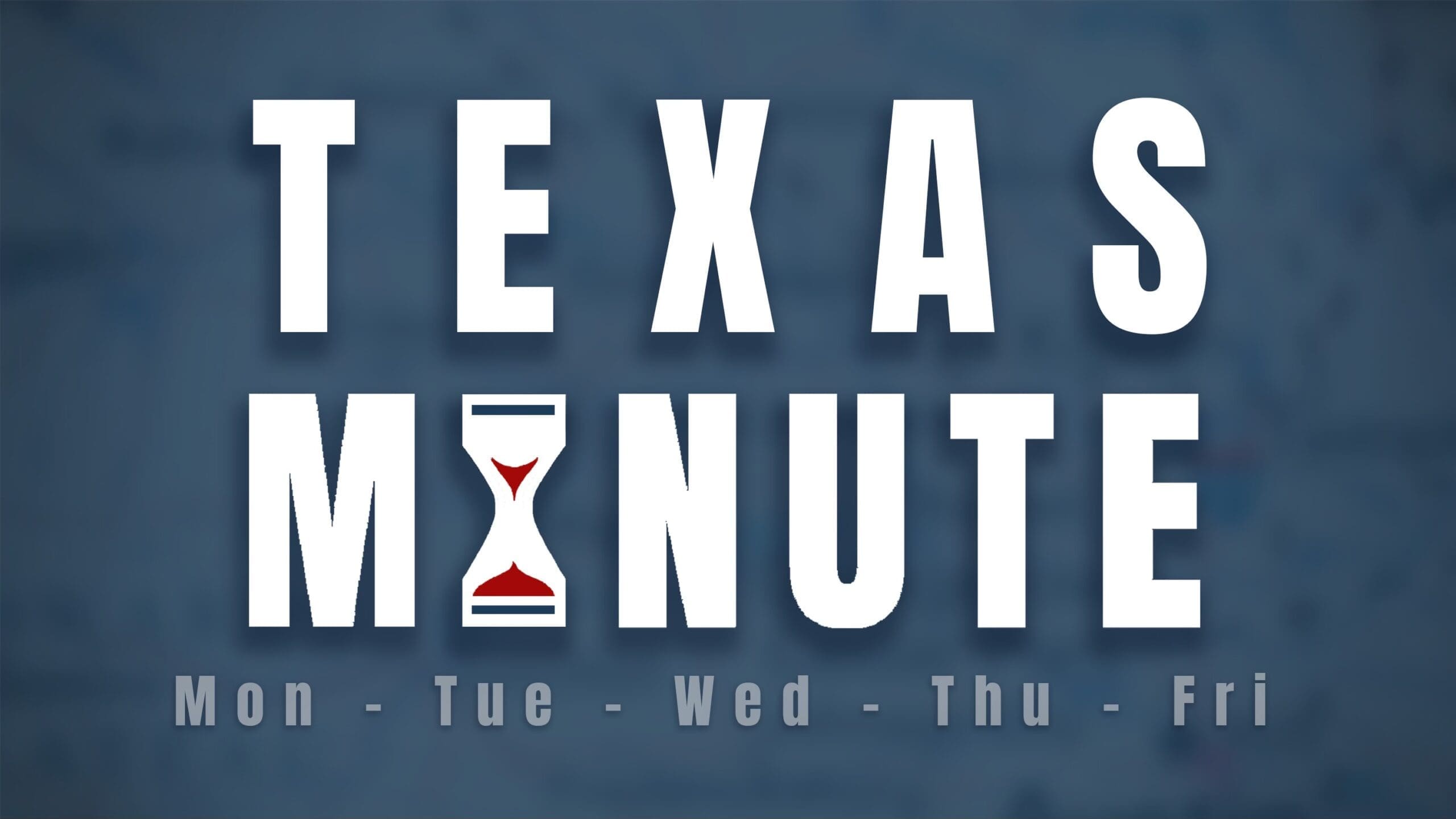“If Only We Had More Time”
As we have previously reported, this legislative session is anything but normal. To understand how this legislative session might play out in the backdrop of a pandemic and now with the added ramifications of a weather emergency, it is important to understand what a “normal” legislative session itself looks like, both on paper and in reality.
At the end of each legislative session, most advocates can expect to hear some variation of the phrase “if only we had more time” from legislators in response to certain priorities not getting across the legislative finish line. In Texas, the process is designed to be limiting. Proposed policy changes can die in multiple ways as the session goes along. Legislators are subject to the legislative calendar or clock and many self-imposed deadlines along the way. Many of these deadlines are purposefully and strategically used to enact certain policy goals or hold other goals hostage.
The Texas Government Code requires that the Legislature meets for a total of 140 days every odd-numbered year, starting on the second Tuesday in January. This cycle, that means the 87th Legislative Session—which started on January 12—ends on May 31. Every session, certain inflection points that take place that help dictate what the remainder of that legislative session will look like.
The governor giving his State of the State address and delineating his priorities or emergency items for the Legislature to consider, or a constitutional built-in bill filing deadline where bills cannot be considered before the first 60 days or filed thereafter, are examples of such inflection points. The House of Representatives has some additional self-inflicted rules. After a specific date in May, for instance, House bills can no longer be deliberated and they only take up Senate bills thereafter. All of these things impact the final results of what policies make it through the entirety of the legislative process.
Visualizing the 140-Day Legislative Session
The First 60 Days – Meetings & Bill Drafting
This period is normally composed of background meetings between legislators and their constituents, special interest organizations, and lobbyists. Legislators also use this time to continue filing bills (many had already taken advantage of the pre-filing period) and drafting them to meet certain needs.
Though there is no official requirement for committee chairmen to use the Texas Legislative Council to help draft the bills, it is common practice that many require an official council draft to be submitted for a bill to even be considered in their respective committees. This makes many legislators subject to the availability of drafters, which may stall their overall legislative agenda of the bandwidth they may have in proposing a bill altogether.
The end of the first 60 days is marked by a bill-filing deadline found in the Texas Constitution that ultimately means no additional bills can be filed after that date. For the 87th Legislative Session, that date is March 12, 2021.
It is important to note that the only bills that can start to be considered during this period are the ones given priority or emergency status by the governor. Historically, however, bills start getting referred to committees in the first few weeks of February.
The Second 60 Days – Bills Moving Through the Legislative Process
This period consists of the bulk of bills actually moving through the legislative process. Generally, bills that are deemed a priority by the governor, lieutenant governor, and speaker of the House move through this process at a much faster pace, with the remaining set of bills given second-tier status.
Normally, the overall appropriations bill also gets considered during this period. Generally, the second 60 days is a slow buildup of bills being considered on the House and Senate floors, with each legislative day’s calendar getting lengthier and lengthier.
The Final 20 Days – Politics & Last-Minute Deals
The final days of the legislative session consist of a series of self-imposed deadlines and last-minute deal-making between key leaders in each chamber.
As deadlines start passing on the overall legislative calendar, the prospects for many bills stuck in limbo start to fade. This can include bills being placed on the calendar for consideration, but falling victim to real-time deliberation between lawmakers.
An unofficial practice deemed “chubbing” also becomes more prevalent, where some lawmakers will churn through time in hopes of not getting to any particular bill on any calendar.
What Takes Place Between Sessions? – The Interim
Outside of just setting policy priorities and shepherding them through the legislative process, it’s also important to understand that the legislative session itself only represents about 19 percent of the overall legislative cycle; the remaining 81 percent is a period known as the interim.
This period does consist of some official legislative obligations, including interim committee hearings to address interim charges set out by both the lieutenant governor and speaker of the House in their respective chambers. These charges are generally requested from each chamber’s membership before distribution to try to prescribe what might be priorities going into the next legislative session.
Outside of their official legislative duties, many legislators—to include all representatives who have filed for re-election and half the Senate every cycle—also have to run for re-election. These campaigns often consume much of the political oxygen during this time and run parallel to their obligations in their official legislative capacities.
So Is This Session “Abnormal”?
Though it is true the Legislature has spent almost no real time gaveled in when compared to previous sessions, they still are within the first 60-day period where almost no legislation can be considered.
The governor gave his list of emergency items in the first week of February, and the Legislature could have moved on those items instantaneously.
With the Legislature slated to return next week, citizens will soon find out how quickly they plan to move on the priorities of Texans.







